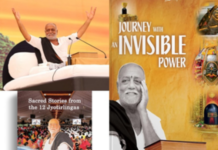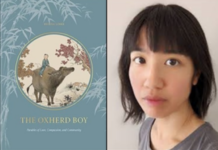By Vishnu Makhijani
New Delhi– The Reconstruction Period (1865-77) that followed the conclusion of the American Civil War gave rise to the pejorative term Carpetbaggers to describe politicians and financial adventurers from the Northern Confederate states who descended on the South to reap from the devastation the conflict had caused.
Sharply dressed and riding a horse with their belongings tied up in an elongated bundle (the carpetbag) that they carried behind them on the stirrup, Indians first became aware of the tribe after watching “Gone With The Wind” when one of these individuals descends on Tara and is shot dead by Melanie Wilkes (Olivia de Havilland), one of the two women left to guard the property along with Scarlett O’Hara (Vivien Leigh), as he rummages through the devastated mansion.
The website vocabularly.com describes a carpetbagger thus: “An outsider who pretends to be an insider…he’s a person who tries to take advantage of a group by joining it only for his own personal benefit”.
Harold Robbins tellingly wrote about the breed in his 1961 novel “The Carpetbaggers) – later turned into a hugely successful film – focusing on the movie industry as the exploited territory and the interloper being the wealthy heir to an industrial fortune, who, like Howard Hughes, faltered in his pursuit of aviation and moviemaking.
Thus, can you blame Indian authors for being the modern day avatars of this tribe? One emerged early this century. His novels sell like hotcakes and some of whom have been translated into Bollywood scripts. He says he doesn’t care a fig of his books don’t go down in history or figure in the Top Ten lists as long as they sell and he makes money.
What is surprising is the attempt of author-columnist Shobhaa De to cash in on the lockdown forced by the coronavirus pandemic and whose slow lifting is causing more pain than it was when first imposed in late March.
But then, is the cart being put before the horse? The first two sentences of the Note by the publisher, Simon&Schuster, in both the first two volumes of her collection of short stories, “Lockdown Liaisons” has this to say: “Cocooned in our small little worlds yet living through the most precarious and awful times – this has got to be a first in the collective memory of the whole wide world. Untouched by the footsteps of migrant workers in the hot sun we rave and rant on social media.”
The third sentence is far, far removed from reality because the social media is replete with postings of how these migrant workers are groaning under the burden of returning home after the loss of jobs in urban areas consequent to the lockdown.
Collectively, they only point to the deep schisms created in Indian society between the haves and the have nots that are not remotely likely to be bridged in the months to come.
The author, it would seem, took these three sentences as a carte blanche in the name of what is euphemistically termed “artistic freedom” to stand a tragedy of untold proportions on its head in a language that makes one shudder.
Sample these initial paragraphs from the opening story in the first volume:
“Life sucks. But at the moment, I am very angry. With Anirudh. Had he not been selfish and used a condom that night, we would not have had Natasha to worry about during this fucking pandemic. We would have managed, somehow. Such a ***! We hardly exchange a word anymore. I see him on that bloody couch all day, playing some idiotic game or the other. Nobody calls. Welle nobody phones me, either! Even requests for Insta Live have dried up – people know nothing is going on as far as new projects go.
“I have so many sexy ideas for a new seriese but where’s the … money to make anything? All those telly stars who would WhatsApp 24×7, with meaningless stuff like, ‘Hey Sweetiee lovely DP! Keep me in mind if you’re working on something.’ And then those emojis! Ufffff… But I miss even that rubbish. Now it’s making sure Natasha doesn’t stick her baby fingers into sockets. Since we had a no-baby deal – or so I thought – our flat was not baby proofed. Now, who’ll come to our building during this *** lockdown?”
How far would one go on reading beyond this? And the language? Is this going to be the new normal?
For the record, there is the story of a woman who is sick of taking care of the house and her husband and baby, there is a migrant worker who has to choose between his lover and family as he gets ready to trek to his village hundreds of miles away, there is a woman torn between family and what she owes herself and there is a man who can’t deal with his wife’s denial of his sexual needs in these times of stress.
What, however the stories fail to do is capture the angst of the innumerable victims of the present times as mothers struggle to find milk for their babies or for even one square meal a day to feed their famished families.
At the bottom line, it amounts to making a virtue out of tragedy – and couching it as a “literary” work.
Then, there is the manner in which the two volumes have been released. The first was done quietly on ecommerce sites last month, the second at a “conversation” Friday night on the publisher’s YouTube channel and Twitter handle between the author and – hold your breath – and actor Sonu Sood.
This reminds me of a photograph of Gregory Peck and Dev Anand that a leading film magazine carried many, many years ago and captioned “Don’t They Look Alike”.
The very next issue carried this riposte: “Are you complimenting Dev Anand or insulting Gregory Peck?”
Draw your own conclusions, but keep in mind these lyrics from the Jim Reeves song “When Two Worlds Collide”:
“Your world was so different/From mine don’t you see/We just couldn’t be close/ Though we tried.
We both reached for heavens/But ours weren’t the same/That’s what happens/When two worlds collide.” (IANS)















